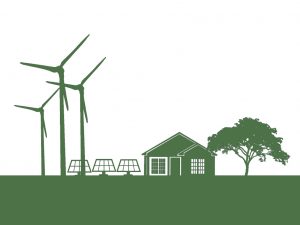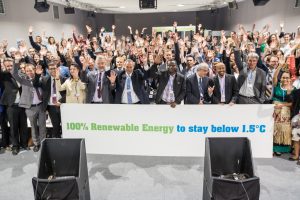Directly and indirectly, the effects of climate change impact on a range of human rights issues.
Climate change represents an enormous threat to a host of human rights: the right to food; the right to water and sanitation; and the right to development.
It was Pope Francis, that amplified the potential human rights abuse perspectives of climate change when he addressed the UN General Assembly in September 2015, and said: “Ecological destruction could place the human species in danger of extinction.”
In that single sentence, the Catholic leader highlighted that people, and perhaps, more of those living in developing countries of Africa and Asia, were extremely vulnerable to the vagaries of climate change, and thus need some form of protection within the context of their rights to life as contained in the 1948 universal declaration on human rights.
As defined by the UN, human rights are rights inherent to all human beings, despite their nationalities; place of residence; sex; national or ethnic origin; colour; religion; language; or any other status. It simply implies that all humans are equally entitled to live without discrimination or abuses amongst others.
Furthermore, the principle of universality of human rights has remained the cornerstone of international human rights law, making it mandatory for states across board to promote and protect all the fundamental rights and freedoms of people without reservations.
But at the least of its description, climate change has no doubt remained an unfair natural phenomenon that has gradually and steadily encroached on the rights of people to live and make the most of their environment and its resources.
From the past actions of some human societies, climate change has crepted in to destabilise the lives of other people in societies: oceans are rising and displacing people from their homes; farmlands are dying and producing less food for people; just as floods and deluge have continued to upend the lives of poor and ordinary people around the world because they’ve lost lands and its resources that should keep them alive.
The consequences of climate change are suffered in particular by people living in low-lying coastal lands like Lagos and all parts of Nigeria’s Niger Delta region which risk devastating impacts from sea rise; arid lands like Nigeria’s northern states which are challenged by desertification; as well as other delicate ecosystems like it is in the south east with high-impact erosion.
Because the negative impacts of climate change are global, and without reservations, we believe that its issues require a global rights-based response, and that understanding that it is going to continue to fundamentally interfere with the ability of individuals’ and communities’ to access water; guarantee food security; as well as have a life and a society to keep, will make it take a top spot in the priority lists of policy makers in Nigeria.
We also believe as said by Pope Francis, that: “In all religions, the environment is a fundamental good. Any harm done to the environment is a harm to humanity,” and thus urge policy makers in Nigeria to protect the rights of ordinary people to life. We don’t have to wait too long to accept that the dangers of climate change is deeply amongst us.





